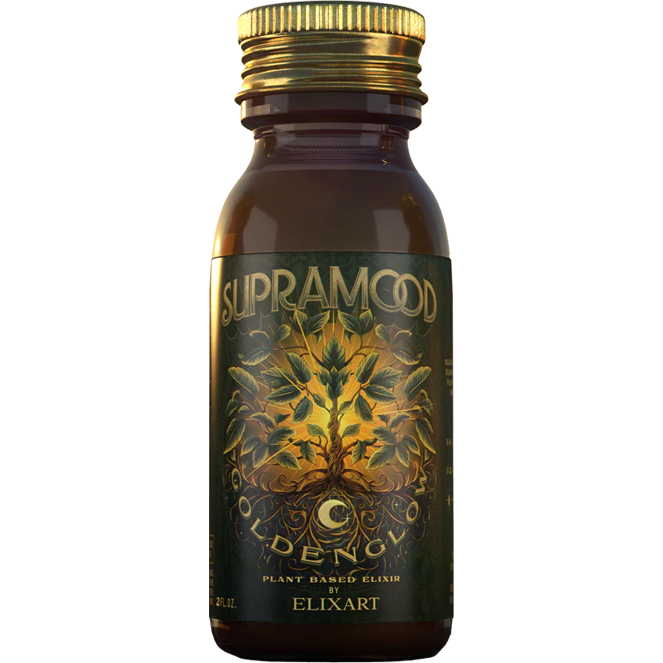Table of Content
- Introduction
- Understanding Kava
- Kava and Kratom: Understanding the Difference
- Incorporating Kava into Your Lifestyle
- Conclusion
- Faq's
Introduction
In recent years, there's been a growing interest in alternatives to alcoholic beverages, driven by health consciousness and a desire for varied social experiences. One such alternative gaining traction is kava, a traditional beverage from the South Pacific known for its calming effects. But can kava truly replace alcohol in social settings? Let's explore.
Understanding Kava
Kava is derived from the root of the Piper methysticum plant, indigenous to Pacific Island cultures. Traditionally consumed during ceremonies and communal gatherings, kava is celebrated for promoting relaxation and social bonding. Its active compounds, known as kavalactones, interact with the brain's neurotransmitters, particularly gamma-aminobutyric acid (GABA), resulting in a calming effect without the intoxicating impact associated with alcohol.
Kava vs. Alcohol
While both kava and alcohol can induce relaxation, their effects and safety profiles differ significantly:
Cognitive Function:
Unlike alcohol, which can impair motor skills and cognitive abilities, kava's impact on these functions is less pronounced, allowing users to remain clear-headed.
Hangover-Free:
Kava offers relaxation without the common aftereffects of alcohol, such as hangovers, making it appealing for those seeking a gentler social lubricant.
Health Considerations:
It's important to note that excessive kava consumption has been linked to liver health concerns, though research is ongoing. Moderation is key.
Kava in Social Settings:
The rise of kava bars across the United States reflects its growing acceptance as a social beverage.

For instance, in New York City's East Village, establishments like Kavasutra Kava Bar have offered patrons a communal space to enjoy kava. However, it's worth noting that some kava bars have faced regulatory challenges.
Kava vs alcohol liver damage:
Although they have rather different effects on the liver, kava and alcohol do interact. It is well recognised that excessive alcohol consumption can harm the liver over time, resulting in diseases like cirrhosis, hepatitis, fatty liver, and even liver failure. The liver is continuously stressed by its toxic byproducts, particularly when binge drinking or drinking frequently. However, kava is seen as a kinder substitute and does not harm the body in the same way that alcohol does. Though research indicates that these occurrences are uncommon and frequently related to incorrect preparation or contamination, there have been some reports connecting excessive or subpar kava products to liver issues. In general, kava is thought to be far less damaging to the liver than alcohol when taken in moderation and from reliable sources. However, before consuming kava on a regular basis, persons with pre-existing liver issues or those taking liver-affecting drugs should exercise caution and speak with a healthcare provider.Kava and Kratom: Understanding the Difference
In discussions about herbal alternatives to alcohol, kratom often enters the conversation. While both kava and kratom are plant-based, their effects differ:
Kava:
Primarily induces relaxation and is used socially to promote calmness.
Kratom:
Depending on the strain and dosage, kratom can act as a stimulant or sedative and has been associated with dependence issues.
Due to these differences, individuals seeking a mindful alternative to alcohol may prefer kava over kratom.
Incorporating Kava into Your Lifestyle
For those interested in exploring kava as an alcohol alternative, starting with traditional preparations or visiting reputable kava bars can be beneficial. Additionally, products like Goldenglow Elixir offer a convenient way to experience kava's calming effects.
Conclusion
To sum up, kava is a distinctive and considerate substitute for alcohol that provides calmness, social interaction, and relaxation without the negative effects of intoxication. Although moderation is crucial because of possible health risks, its increasing availability and popularity make it a desirable choice for people looking for more healthful social interactions. In today's wellness-focused lifestyle, kava offers a natural way to relax, connect, and embrace balance, whether it is consumed traditionally or through contemporary products.
FAQ's
Can kava really replace alcohol in social settings?
Yes, kava can serve as a natural alternative to alcohol. It promotes relaxation and social bonding without intoxication or hangovers, making it appealing for mindful social experiences.
Is drinking kava safe for everyone?
Kava is generally safe when consumed in moderation. However, excessive use may affect liver health, so it’s best to consult a healthcare professional before regular use, especially for those with existing liver conditions.
How does kava make you feel compared to alcohol?
Unlike alcohol, which can impair judgment and motor skills, kava induces a calm, relaxed state while keeping you clear-headed and present.
What’s the difference between kava and kratom?
Kava primarily promotes relaxation and social calmness, while kratom can act as either a stimulant or sedative depending on dosage and strain. Kava is generally preferred as a mindful, social alternative to alcohol.
5. Where can I try kava for the first time?
You can experience kava at kava bars, which are growing in popularity across the U.S., or through trusted brands offering tinctures, capsules, and ready-to-drink elixirs for convenient use.






Leave a comment
This site is protected by hCaptcha and the hCaptcha Privacy Policy and Terms of Service apply.